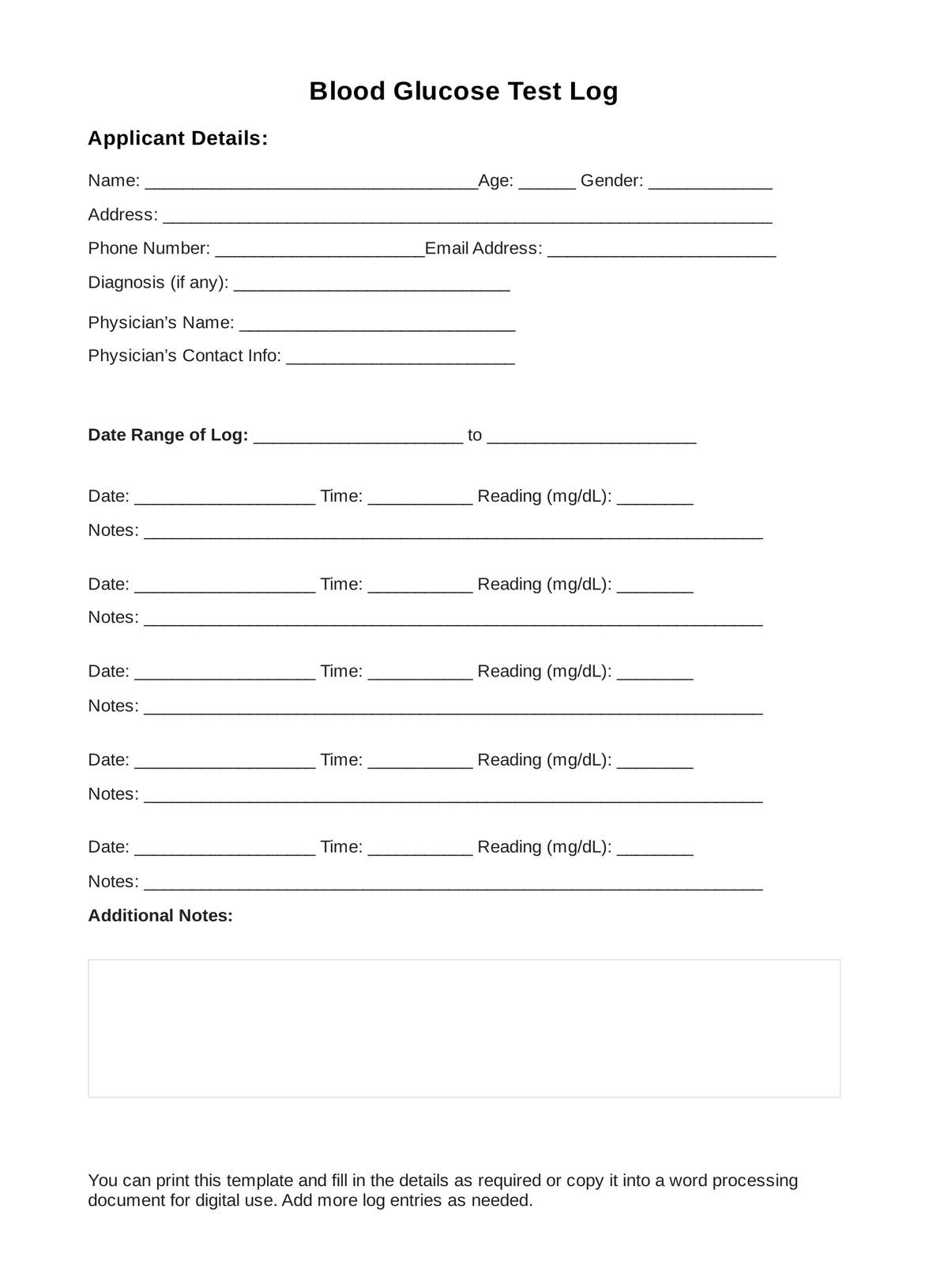Healthcare providers typically order a blood glucose test if they suspect you have high or low blood sugar based on your symptoms, during routine check-ups, or if you're at risk for diabetes.

Blood Glucose Test
Discover accurate Blood Glucose Test methods for managing diabetes. Learn about normal ranges, how to test, and understand your results for better health.
Use Template
Blood Glucose Test Template
Commonly asked questions
Blood glucose tests are used to diagnose and manage diabetes, check for hypoglycemia or hyperglycemia, and monitor the effectiveness of diabetes treatment.
?
The test involves taking a blood sample from a vein in your arm or a prick on your finger. The sample is then analyzed in a lab or using a home testing kit to measure the amount of glucose in your blood.
EHR and practice management software
Get started for free
*No credit card required
Free
$0/usd
Unlimited clients
Telehealth
1GB of storage
Client portal text
Automated billing and online payments











